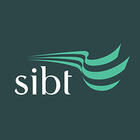Diploma of Communication and Creative Industries
- Home
- Courses
- Sydney Institute of Business and Technology
- Diploma of Communication and Creative Industries
Diploma of Communication and Creative Industries
Studying a Diploma of Communication and Creative Industries will give you a grounding and skills in national and global media and communication industries, cross-cultural communication, digital literacy skills, and creative storytelling. You will graduate with an understanding of cultural and societal considerations, the need for collaboration, as well as ethics…
Categories
COURSE DESCRIPTION
Studying a Diploma of Communication and Creative Industries will give you a grounding and skills in national and global media and communication industries, cross-cultural communication, digital literacy skills, and creative storytelling. You will graduate with an understanding of cultural and societal considerations, the need for collaboration, as well as ethics and sustainability.
Once you complete the Diploma of Communication and Creative Industries, opportunities include progression to the second year of the Bachelor of Media and/or Communication, or Creative Industries, or an entry level position in advertising, PR, media, communication organisations or within the creative space.
Course Structure
The Diploma of Communication & Creative Industries can be completed over two or three sessions. It comprises of core (mandatory) and elective units. You will study eight units in total from the list below, which includes six core units and two elective units. The elective unit is dependent on articulation.
Core units
CMEC111 Introduction to Media and Communication
CSTM121 Storytelling for the Media
CDMI122 Digital Media, Data and Influence
CPRC113 Public Relations and Communication
CADV111 Introduction to Advertising
CNEW132 News and Journalism
Choose two elective units
It is recommended that if you want to progress in the Media Industry you select two of the following units:
CMCC212 Intercultural Communication and Cultural Conflict
CMGM212 National and Global Media
CMIS212 Ideas and Society
To progress into Creative Industries, complete these two electives:
CICI202 Foundations of Creative Industries
BMAN103 Managing and Leading
Leading to
- Bachelor of Communication (Advertising)
- Bachelor of Communication (Journalism)
- Bachelor of Communication (Public Relations)
- Bachelor of Creative Industries
Rephrase with Ginger (Ctrl+Alt+E)
REQUIREMENTS
SIBT requires you to have completed Australian year 12 (or equivalent) to qualify for entry into a Diploma program. An ATAR is not required. We will look at your overall results as well particular subject areas to determine the program you will be accepted into.
English Language Requirements:
- IELTS (Academic) – 6.0 (min 5.5 in all bands)
- TOEFL iBT – 79 and above
- SPM English – Grade B4
- Pearsons Test of English Academic (PTE) – 50
- Cambridge English Scale – 169 (no skill less than 162)
EDUCATIONAL INSTITUTION
Established in 1997, Sydney institute of Business and Technology (SIBT) is part of the global Navitas Group and is a tertiary college offering international students a direct pathway to a university degree. SIBT offers flexible entry criteria whereby students can complete a SIBT diploma and then directly progress into their second-year studies of a university bachelor degree. The institute also provides opportunities for students who have embarked on a career but are looking to up skill or forge a new career path. SIBT offers students a range of support services designed to assist their successful transition to university life. Upon graduating with a diploma, students can select from a variety of university options to further their studies. Over 90 per cent of SIBT students are recorded as successfully graduating and going on to continue the second year of their undergraduate degree at university.
Established in 1997, Sydney institute of Business and Technology (SIBT) is part of the global Navitas Group and is a tertiary college offering international students a direct pathway to a university degree. SIBT offers flexible entry criteria whereby students can complete a SIBT diploma and then directly progress into their second-year studies of a university bachelor degree. The institute also provides opportunities for students who have embarked on a career but are looking to up skill or forge a new career path. SIBT offers students a range of support services designed to assist their successful transition to university life. Upon graduating with a diploma, students can select from a variety of university options to further their studies. Over 90 per cent of SIBT students are recorded as successfully graduating and going on to continue the second year of their undergraduate degree at university.




